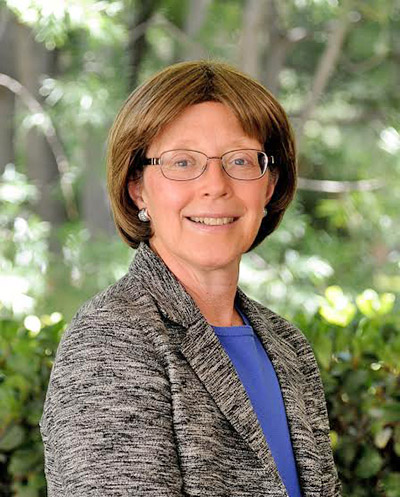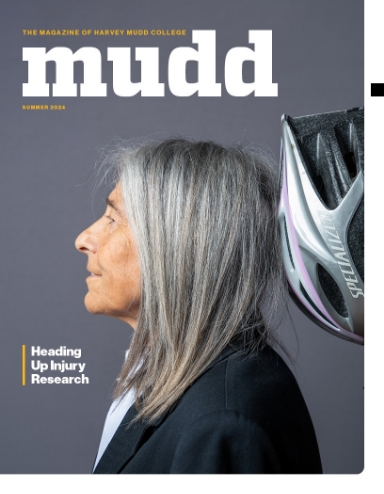New Directions for Advancing Undergraduate Research
April 24, 2015
Five years in the works, a new journal volume, co-edited by Ray and Mary Ingwersen Professor of Chemistry and department chair Kerry Karukstis, is a helpful resource for those seeking effective practices for undergraduate research—a powerful form of engaged learning—and increased STEM student academic and career success.
The special volume, titled “Enhancing and Expanding Undergraduate Research: A Systems Approach,” documents selected educational institutions’ pathways to accomplishing growth in undergraduate research. It is based on findings from a study of national initiatives of the Council on Undergraduate Research (CUR). Produced by Karukstis and her fellow co-principal investigators, Mitch Malachowski (UC San Diego), Jeff Osborn (College of New Jersey) and Elizabeth Ambos (CUR), the work appears in the spring 2015 issue of the periodical New Directions for Higher Education.
The publication showcases the results of their work on a Course, Curriculum, and Laboratory Improvement (CCLI) grant from the National Science Foundation. The project involved 80 institutions at six systems/consortia, including City University of New York, Great Lakes Colleges Association, Pennsylvania State system of Higher Education, Council of Public Liberal Arts Colleges, California State University system and University of Wisconsin State system. Workshop curricula were offered by the project PIs to devise both institutional and system plans of action to help cultivate a more robust culture of undergraduate research. Follow-up workshops assessed both the successes and challenges of fostering transformative change at the institutional level.
The project culminated in a summit meeting in Washington, D.C., in March 2014 that brought together participating systems and consortia with the goal of sharing lessons learned in “institutionalizing” undergraduate research culture.
The work consists of nine chapters co-authored by the four PIs, as well as by diverse practitioners and researchers. They describe their journeys to deepen understanding of how large-scale change can be fostered in complex higher-education systems. Their experiences highlight many of the issues that others need to consider as they move toward comprehensive, institution-wide teacher–scholar and student-as-scholar models.
Karukstis, who has served CUR in numerous capacities since 1993, says she values not only what she shares with the council regarding Harvey Mudd’s model of success, but also what she brings back to campus from other schools and consortia. She sees her involvement as a great way to promote the College in higher education circles.
“Many institutions aspire to emulate Harvey Mudd’s long tradition of high-quality, collaborative student–faculty research, a tradition of which we are immensely proud,” says Karukstis, who co-authored two of the volume’s chapters. “Nevertheless, we should take advantage of opportunities to learn how other institutions have devised successful strategies for sustaining highly effective undergraduate research environments. There are always ways for us to enhance student learning and faculty professional development through undergraduate research experiences.”
Since 2009, Harvey Mudd College has been an enhanced institutional member of CUR, which supports faculty and student development for high-quality undergraduate student-faculty collaborative research, scholarship and creative activities.
